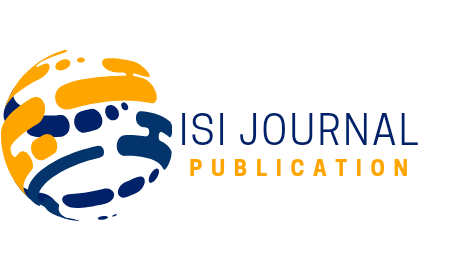How to Choose the Right ISI Journal for Your Research
For many researchers, selecting the right journal is as important as conducting the research itself, and when it comes to building academic credibility, publishing in ISI-indexed journals is often the ultimate goal. These journals are recognized globally for their rigorous standards, scholarly reputation, and visibility within the academic community, making them the preferred destination for serious scholars. However, the process of choosing the right outlet for your manuscript can be daunting without clear guidance. The first step in successful journal selection is understanding the scope of your research and matching it with the journal’s subject area. This is where journal selection tips become essential, as aligning with subject relevance ensures your work resonates with the journal’s readership and avoids immediate rejection for being out of scope. Beyond scope, another critical factor in choosing among ISI-indexed journals is evaluating the impact factor, which reflects how frequently articles from the journal are cited. A high impact factor indicates strong influence and reach, but it also means the journal will be more competitive and selective. While aiming for the highest possible impact factor is tempting, researchers should balance ambition with practicality by considering journals where their work is both a good fit and has a realistic chance of acceptance.
When weighing journal options, it is also vital to review recent issues to assess whether the journal has published work similar to your topic and methodology, which reflects not only subject relevance but also the journal’s openness to new approaches in your field. In addition, many ISI-indexed journals publish detailed author guidelines, and carefully studying these helps researchers tailor their manuscripts accordingly. Attention to these details saves time and reduces the risk of desk rejection, which is common when manuscripts do not conform to formatting or stylistic requirements. Professional publication services often play a pivotal role here, helping researchers refine their manuscripts to meet specific journal standards, format references correctly, and polish the overall language for readability and professionalism. Many authors underestimate the importance of presentation, but in competitive journals, small details like clarity, structure, and adherence to style guides can influence editorial decisions. By investing in professional editing and online publication services, researchers ensure their work is submission-ready, increasing the likelihood of progressing to peer review.
Another factor to consider is the journal’s review process and publication speed. Some ISI-indexed journals are known for lengthy peer review timelines, which may not align with a researcher’s academic or career needs. Choosing a journal with efficient review cycles or offering early online publication options can make a significant difference in how quickly research reaches its intended audience. Many online publication services provide insights into typical review timelines and help researchers select journals that balance prestige with timely publication. Cost is another dimension of journal choice that should not be overlooked. While many ISI-indexed journals are subscription-based, some are hybrid or open access, requiring authors to pay article processing charges (APCs). Evaluating your budget and funding availability is therefore an important part of journal selection. Professional publication services can guide authors in identifying journals that match both their research goals and financial resources, ensuring that cost does not become a barrier to visibility.
Researchers must also consider the audience and geographical reach of the journal. Publishing in an ISI-indexed journal that is widely read within your field guarantees that your work reaches the scholars who are most likely to engage with, cite, and build upon your findings. For interdisciplinary research, this becomes even more critical, as the right journal ensures your work is noticed across multiple disciplines. A useful journal selection tip is to track where leading scholars in your field publish their work and use this as a benchmark for identifying reputable and impactful outlets. In addition, checking indexing information ensures that the journal is genuinely ISI-indexed and not misleadingly advertised. Trusted online publication services often include journal verification support, helping authors avoid predatory or non-indexed publishers that could damage their academic reputation.
The impact factor should not be the sole determinant of journal choice. While it remains a widely used metric for evaluating journal quality, authors should also look at alternative indicators such as citation half-life, acceptance rate, and editorial board composition. These provide a more nuanced understanding of the journal’s influence and suitability for your work. For early-career researchers, targeting a moderately high impact factor journal with a strong reputation in their subject area can be a more effective strategy than aiming exclusively for top-tier outlets with extremely low acceptance rates. With the guidance of professional publication services, authors can map out a realistic strategy that balances ambition, subject alignment, and visibility.
Ultimately, choosing the right ISI journal is a strategic decision that combines awareness of academic standards with practical considerations. The research publication process is demanding, and missteps in journal selection can cost researchers months of valuable time. By applying clear journal selection tips, focusing on subject relevance, evaluating the impact factor, and leveraging expert publication services or online publication services, authors place themselves in the strongest possible position for successful journal publication. Publishing in ISI-indexed journals not only validates the quality of research but also amplifies its global reach, enhancing academic reputation, fostering collaboration, and opening doors to future opportunities. For researchers serious about advancing their careers, careful journal selection is not just a preliminary step—it is a decisive factor in achieving academic success and ensuring that their contributions make the impact they deserve in the world of scholarly communication.
